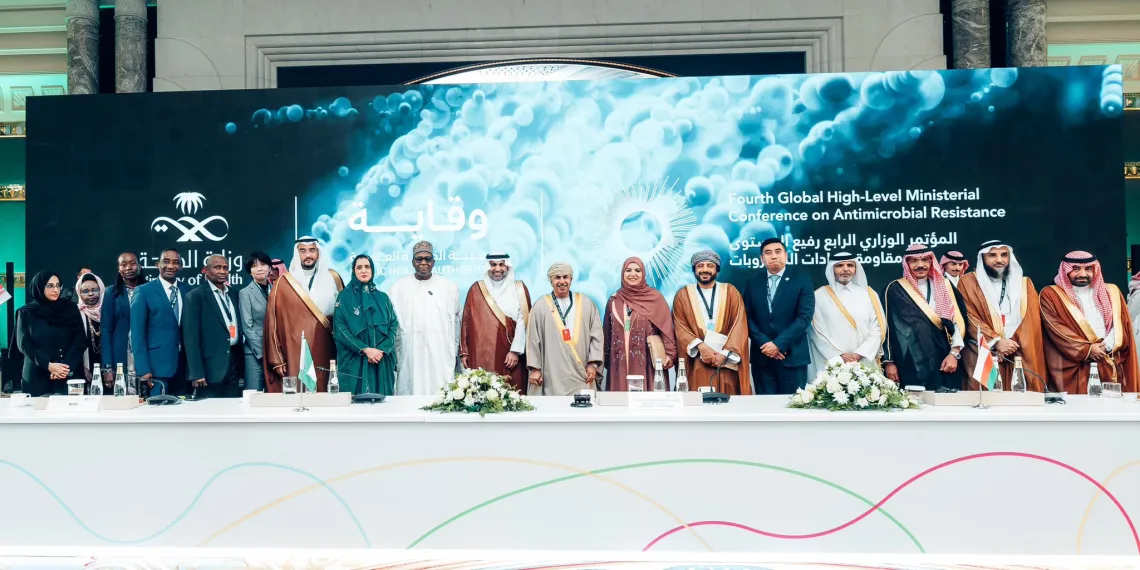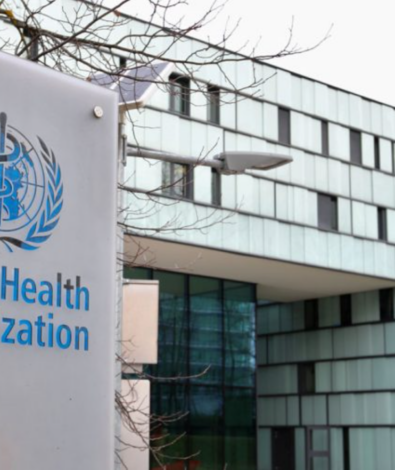Nigeria to host 5th global antimicrobial resistance ministerial conference in 2026

Nigeria has been announced as the next host of the bi-annual High-Level Ministerial Conference on Antimicrobial Resistance (AMR) in 2026.
The announcement was made during the just-concluded 4th edition held in Jeddah, Saudi Arabia, from 15 to 16 November under the leadership of Saudi Arabia’s Minister of Health, Fahad Al-Jalajel.
The Coordinating Minister of Health and Social Welfare, Muhammad Ali Pate, has confirmed the success of the 4th bi-annual High-Level Ministerial Meeting on Antimicrobial Resistance (AMR) and pledged Nigeria’s readiness to host the next edition in 2026.
In a post on his X account, Pate wrote, ” I thank Saudi Arabia’s Minister of Health, Fahad Al-Jalajel, and the Saudi Ministry of Health for their outstanding leadership in addressing AMR.”
“We will learn and build upon your success for the 5th edition in 2026. Counting on the Troika process for smooth transition and the quadripartite. Nigeria is open to welcoming all member states in 2026,” he wrote, expressing Nigeria’s readiness to build on Saudi Arabia’s success and continue the fight against AMR.
Pate emphasized the urgent need to address AMR, calling it a “silent but wicked problem” that impacts lives and livelihoods every day.
According to him, “We need to enhance preventative measures, using one health approach, and advance access and rational use of effective antimicrobials to save lives while promoting research and innovation to develop more effective tools.,” he said.
The 4th AMR meeting in Jeddah brought together global health leaders, policymakers, and stakeholders to address the escalating AMR crisis.
Delegates reaffirmed their commitment to strengthening National Action Plans and promoting access to vital medicines.
The Jeddah commitments
According to the Saudi Press Agency, the ministerial conference culminated in the approval of the Jeddah Commitments, marking significant progress in the global fight against antimicrobial resistance.
- The conference themed: “From Declaration to Implementation”, had ministers, health experts, and stakeholders from around the world address the urgent need for coordinated action to address AMR.
- The Jeddah Commitments build on the Political Declaration on AMR adopted at the 79th United Nations General Assembly High-Level Meeting on AMR in September.
- The Jeddah Commitments include strengthened governance, enhanced surveillance and stewardship, capacity building, research and development, and public awareness building through educational initiatives.
- Speaking on the adoption of the Jeddah Commitments, the Saudi Minister of Health said he believes the commitments drive the global AMR agenda forward with impactful actions. “It’s time to act,” he said.
Mr Al-Jalajel also announced Nigeria as the host of the 5th Global High-Level Ministerial Conference on the issue.
“To maintain momentum, we propose a stronger mechanism, the troika system, to drive forward action and implementation through 2025 and 2026 until the 5th Ministerial Meeting. I look forward to working with Nigeria as the newest member of the troika,” he added.
Understanding Antimicrobial Resistance (AMR)
According to the World Health Organization (WHO), AMR occurs when bacteria, viruses, fungi, and parasites evolve and no longer respond to medicines, making infections harder to treat. This increases the risk of disease spread, severe illness, and death.
AMR targets set by world leaders at UNGA79
During the 79th United Nations General Assembly (UNGA79), world leaders committed to tackling AMR by adopting ambitious targets. Key goals include:
- Reducing drug-resistant infections.
- Promoting responsible antimicrobial use.
- Strengthening global surveillance systems.
- Investing in innovation and research.
- Scaling up prevention measures.
- Adopting a One Health approach to address AMR across human, animal, and environmental health.
These commitments reflect a global consensus on the need for a coordinated, long-term approach to combating AMR.



